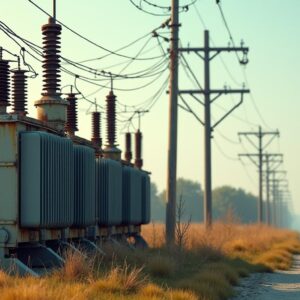The need for a consistent power supply has become indispensable in today’s rapidly evolving world. From safeguarding critical data in businesses to ensuring residential comfort during adverse weather, backup generators are becoming essential household and business tools. Home backup generators are pivotal in providing a continuous power supply during outages, ensuring the continuation of vital daily activities.
The rising occurrence of erratic weather patterns and the growing dependence on electronic devices underscores the importance of preparing for power interruptions. By planning and investing in reliable power solutions, you can avoid numerous inconveniences and potential losses.
Contents
Types of Backup Generators
Backup generators come in various forms and sizes, catering to different requirements and settings. Understanding these differences is the key to making informed purchasing decisions. Generators fall into two categories: portable and standby generators, each designed to meet specific needs and situations.
Portable vs. Standby
Portable generators are versatile due to their mobility and ease of use, making them ideal for temporary power needs, such as during a brief outage or outdoor events. These units are usually compact and easy to transport yet powerful enough to energize essential appliances.
On the other hand, standby generators provide a more robust solution. They are permanently installed at your premises and automatically activate during a power failure, delivering a seamless transition to ensure your life and work remain uninterrupted. Standby generators are generally more suitable for homes or businesses where unexpected power loss can result in significant disruption or damage.
Dual Fuel Options
Dual fuel generators are gaining popularity for their operational flexibility and efficiency. Such generators can run on either gasoline or propane, providing users with a valuable option when fuel sources are limited, notably during emergencies. This versatility ensures that even if one fuel type is unavailable, the generator can still operate using the other, adding an extra layer of reliability and convenience during critical times.
Key Features to Consider
Choosing the right backup generator requires careful consideration of several crucial features to ensure it is aligned with your power requirements and consumption habits.
Power Output
The power output of a generator is arguably its most significant characteristic. It determines how many and which types of devices and appliances you can support during an outage. Understanding your energy needs is essential in selecting a generator with sufficient capacity to prevent overloads while ensuring all critical appliances and systems can function smoothly. Evaluating different models and comparing their power outputs can help you find the right balance for your home or business setup.
Run Time and Fuel Type
Another crucial consideration is the generator’s run time, which correlates directly with fuel type and tank size. Generators powered by diesel or propane often offer more extended run times, making them ideal for prolonged outages.
Opting for units with efficient fuel consumption ensures that power delivery remains consistent without excessive operational costs. Selecting the appropriate fuel type that aligns with your energy needs and availability can facilitate efficient generator usage without unnecessary stress during emergencies.
Choosing the Right Size
Determining the optimal size for your generator requires understanding your power consumption patterns and evaluating the space available for installation. Selecting a generator that matches your energy demands prevents underutilization or over-expenditure, which could lead to inefficiencies or financial strain.
Consulting with professionals or leveraging online tools can help you identify the proper size by assessing the number of electrical circuits in your home, the wattage requirements of essential appliances, and the total energy consumption during peak usage.
Environmental Impact of Generators
The environmental impact of generator usage is a growing concern for many consumers. As more people strive towards sustainability, eco-friendly innovations in generator technology have become a critical consideration. Advances such as cleaner-burning engines and reduced emissions can significantly decrease a generator’s environmental footprint without compromising performance.
Choosing environmentally responsible options helps preserve the environment while maximizing energy efficiency, appealing to eco-conscious individuals and companies looking to lessen their carbon emissions. For further insights, review these advancements in generator technology that promote sustainability.
Cost Analysis: Long-term Benefits
While backup generators may require a substantial initial investment, understanding their cost-effectiveness over the long term can justify the expense. These devices prevent financial losses from spoiled food, disrupted workdays, or damaged electronics caused by unexpected power outages. Over the generator’s lifespan, the potential savings from avoiding such losses can substantially surpass the purchase cost, making it a sound investment for ongoing stability and security.
Installation and Safety Precautions
Correct installation and upkeep of backup generators are crucial for guaranteeing their safe and effective functioning. Engaging a certified professional for installation can mitigate potential hazards such as electrical shock or carbon monoxide buildup. Besides correct placement and ventilation, regular maintenance checks are essential to preserving the generator’s performance and extending its operational life. Safety guidelines must be strictly adhered to, helping safeguard users while maintaining warranty compliance and operational efficiency.
Conclusion and Final Thoughts
Acquiring a dependable backup generator is a strategic move that secures your power supply and preserves peace of mind during unforeseen outages. The vehemence of utility disruptions necessitates a solution that caters to the distinct needs of its users. By evaluating critical parameters like size, fuel type, power output, and environmental considerations, homeowners and businesses can select the best generator that aligns with their requirements, supporting continuous power delivery and minimizing disruptions to daily life.





